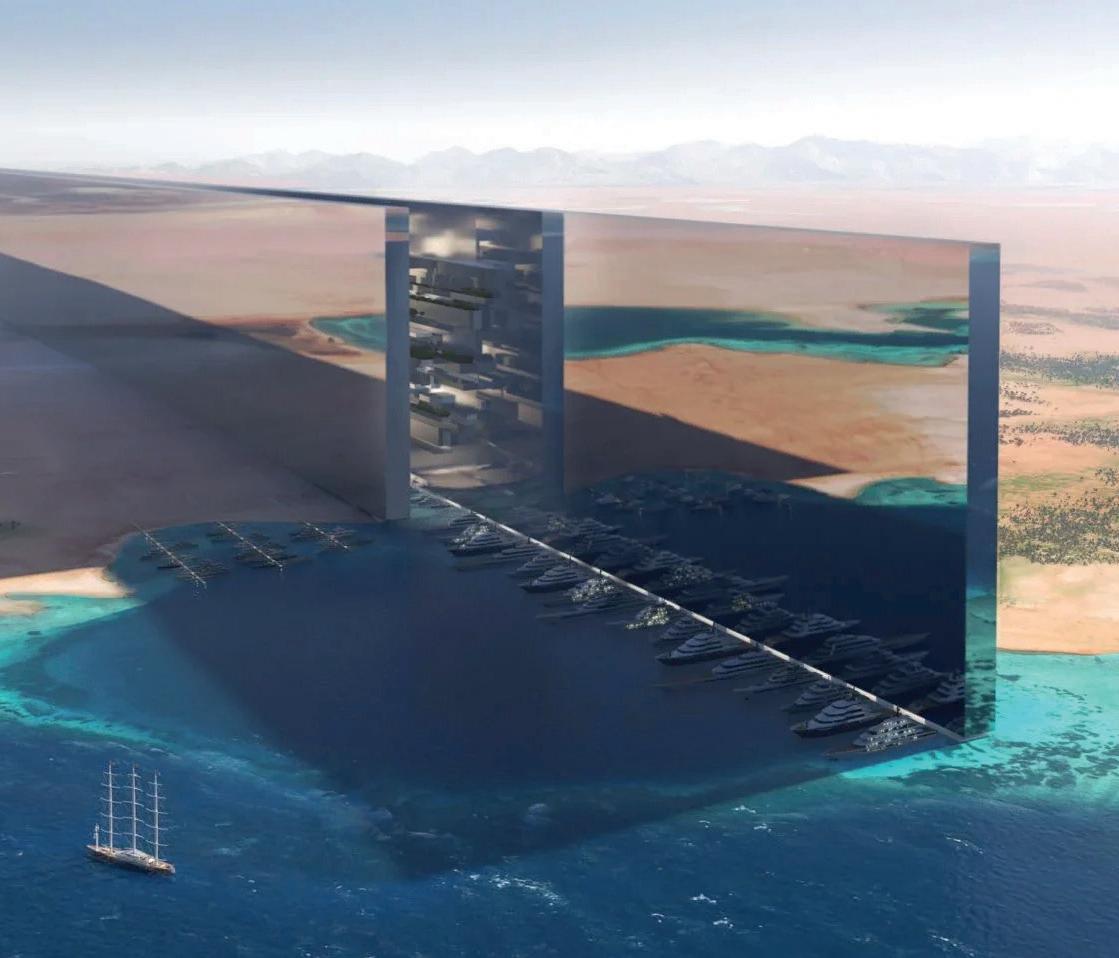
3 minute read
PAUL GRIFFITHS
CEO, DUBAI AIRPORTS
As CEO of Dubai Airports, Paul Griffiths is tasked with the responsibility for the operation and development of Dubai International (DXB) – the world’s busiest airport for international passengers, as well as Dubai World Central (DWC).
Advertisement
After a turbulent last few years, Dubai Airports has had the task of restoring its operations to prepandemic levels, and Dubai Airports said on Tuesday that traffic at Dubai International (DXB) for the first quarter of 2023 had reached 95.6% of the corresponding period in 2019 (prepandemic), with passenger numbers exceeding 21.2 million.
DXB’s strong performance in the first quarter has meant that officials have now revised the forecast for the airport’s annual passenger traffic. Paul Griffiths said: “With important developments in the international travel sector such as the further easing of travel protocols in China, and the upcoming local annual seasonal peaks and festive holidays, our outlook for the second quarter and the remainder of the year remains bullish. Accordingly, we have had to readjust our traffic forecast for 2023 upward to 83.6 million passengers, which will put DXB within striking distance to our 2019 annual traffic.”
DEWA & Dubai Airports Unite
A key element of Griffiths’ leadership has been the focus on energy efficiency, in fact, the Dubai Airports chief recently met with HE Saeed Mohammed Al Tayer, MD & CEO of Dubai Electricity and Water Authority (DEWA) to discuss enhancing bilateral cooperation between DEWA and Dubai Airports.
The meeting aimed to exchange views to achieve common goals and support government directions. The meeting also discussed the latest developments in the project undertaken by Etihad Energy Services Company (Etihad ESCO), which is a wholly owned subsidiary of DEWA. The project aims to retrofit a number
Facts & Figs
Joined Dubai Airports as its first CEO in October 2007
Instrumental in the flawless launch of Terminal 3 at DXB
In 2010, successfully opened the Emirate’s second airport, DWC
He achieved another milestone in Dubai’s aviation history on 2 January 2013 with the opening of Concourse A, the world’s first purpose-built A380 facility and again with Concourse D on February 24, 2016.
Paul also oversaw the opening of the passenger terminal at DWC on 27 October 2013
On December 20, 2018, Paul joined Dubai Airports’ Chairman HH Sheikh Ahmed bin Saeed Al Maktoum in welcoming DXB’s billionth passenger of buildings at Dubai Airports to optimize energy efficiency.
Mr Griffiths said: “As an organisation that puts sustainability at the forefront of its long-term strategy, we at Dubai Airports are proud to partner with DEWA on the Etihad Energy Services Company (Etihad ESCO) project to retrofit a number of buildings at Dubai Airports and enhance energy efficiency.
“By working together towards a sustainable future, we aim to contribute to the UAE government's goal towards a net-zero carbon emissions economy by 2050. A key priority in 2023 is to deliver sustainable operations as we strive to maintain our position as the world's busiest global hub. With the UAE hosting COP 28 this year, we are very excited about the developments and opportunities that we are presented with and our role in achieving them.”
As the leading figure in Saudi Aramco, the world’s leading integrated energy and chemicals organisation, and the largest provider of crude oil to global markets, Amin Nasser plays a vital role in Middle Eastern and global development. Nasser is also leading Saudi Aramco’s efforts to produce cleaner energy and products through investments in promising technologies such as next-generation fuel-engine interfaces, crude oil-tochemicals processes, and renewable energy applications; entrepreneurial start-ups focused on cleaner energy solutions; and industry-wide efforts to minimize greenhouse gas emissions, such as the Oil and Gas Climate Initiative (OGCI). He is also an advocate for an efficient, accessible, and world-class supply chain ecosystem that includes smallto-medium-sized enterprises (SMEs) to support Saudi Aramco's growing procurement needs.
As well as leading positive change in the sector, Nasser also plays a key role in aiding global superpower China into a more secure future. He said: “Saudi Aramco aims to play a key role at the heart of China’s long-term energy security and high-quality development,” also stating that Saudi Aramco will expand its oil production capacity to 13 million barrels per day by 2027 while increasing gas production by more than 50% by 2030 to fuel China’s efforts to this end.
Mr Nasser added: “We are also working on solutions such as advanced carbon capture and storage (CCS) and circular carbon economy technologies. Furthermore, we recently launched a US$1.5 billion venture capital sustainability fund to invest in advanced technologies to help us move closer to a net-zero emissions future.
“We want to be an all-inclusive source of energy and chemicals for China’s long-term energy security and China’s high-quality development. That is why we are doubling down on China’s energy supply, including new lower carbon products, chemicals, and advanced materials, all supported by emissions reduction technologies.”
Nasser has also been sounding the alarm with regards to oil capacity of late. According to a statement he made in late 2022, spare global oil production capacity is running thin, and the world should be "worried" about the impact of a rebound in demand when China winds down its zero-COVID policy and aviation










